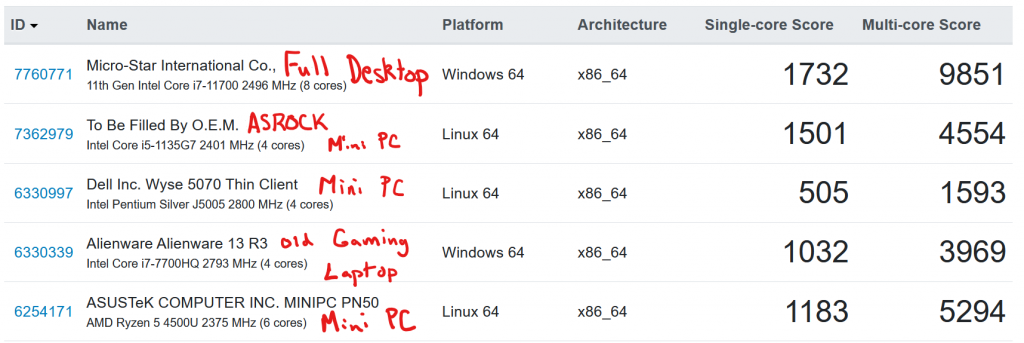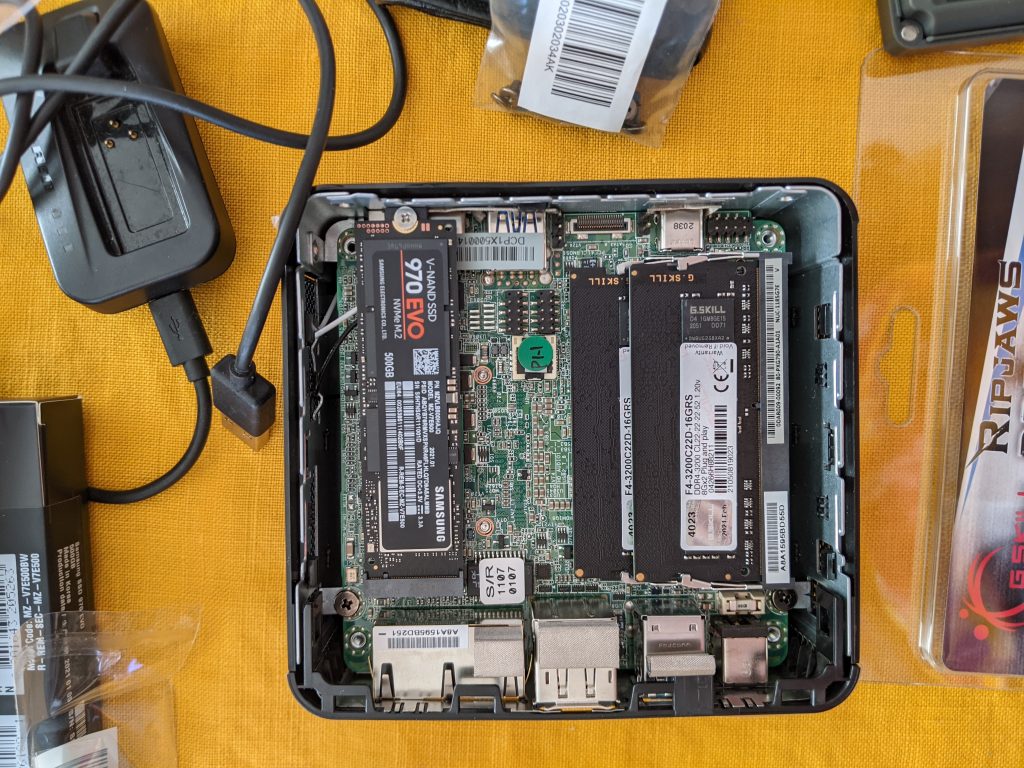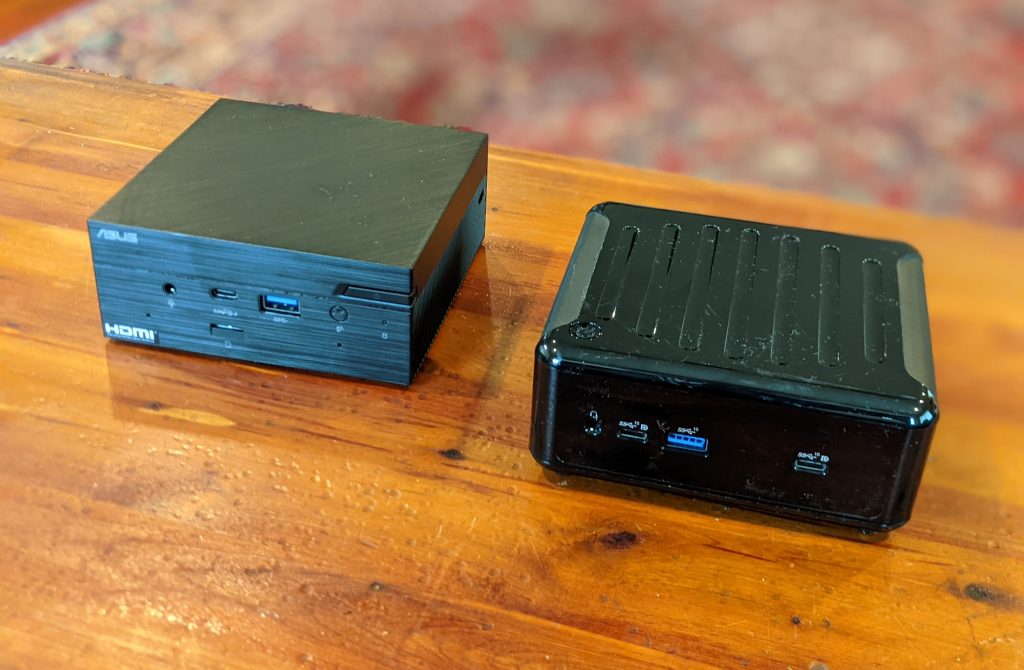Mini PCs are amazing! But most people will probably have difficulty getting too excited about them, because they are pretty much just small black boxes.
TLDR: Mini PCs are probably the desktop of choice for most people these days.
Mini PCs (sometimes referred to as Nuc Boxes) are what happens when you take components designed for laptops and make a desktop form out of them. They are much smaller than a desktop and easier to modify than a laptop. They are cheaper than a laptop because you don’t pay for the screen, battery, and all. They have a lot more ports than most laptops do. Most excitingly for me, because they use laptop components, they offer much better compute power/energy used, ie they are energy efficient compared to a desktop. Laptop chips these days are actually quite powerful when running at full power, as these computer do, so performance is quite good.
The one major con is that most don’t allow a discrete graphics card, although because they are laptop CPUs, the integrated GPUs like Intel Xe these days are powerful enough for most uses, including light gaming.
The largest market for mini PCs is industrial ie for powering the display screens inside stores, and so on. As a result, the design and features tend to be fairly industrial and rugged, but on the positive side that means the BIOS and other features tend to be more functional than in the average laptop.
In the quest for a small home microk8s cluster I got a few of these computers. I have an ASROCK 1135 Nuc Box (with an Intel i5 1135G7 CPU 4 core), and ASUS PN50 (with AMD Ryzen 5 4500U 6 core). I would also classify my Wyse 5070 thin client as a mini pc.
Let’s get the Dell Wyse 5070 out of the way first. I would never pay full price for this, but I like them because you can find tons of them used in good condition on ebay for ~$100. In my opinion, they are in the Raspberry Pi class but better because x86, easy ssd use, and customizable memory bays. At idle, mine sips about 1W.
How to Choose a Mini PC:
- Choose a brand based off port selection (mini sd card reader vs super fast usb ports?)
- Choose a CPU based on price/benchmarks
It’s so simple because most things are pretty much the same. Small black boxes.
Choosing the CPU
I like Intel for good reason. Here, the 1135 supports AVX512 and Intel MKL both of which make it much faster at my data science workloads than the AMD Ryzen. Intel also has a significantly faster single core score. The 5000 series from AMD should be closer on that, though. For my use cases, Intel is clearly the best choice. Intel also has better integrated graphics. But I would avoid older gens of Intel, get 11th gen or later!
Overall, I would say for the average user, it won’t matter too much in the choice between AMD and Intel at this point. Both make good CPUs these days.
Below are some comparative Geekbench results. Bigger score is better. The custom built Desktop wins hands down, but is also 3x-4x the price of the mini PCs. The CPU in that alone costs about the same as the full cost of one of these mini pcs…
Looking at aggregated benchmarks for these laptop CPUs might be a bit iffy because many of the results will come from laptops, possibly running on battery and almost certainly with inadequate cooling.

Conclusion
Need a small, efficient and effective computer? Seriously consider getting a mini pc or intel nuc box. Choosing one these days is pretty easy because most of them are just slight variations on a theme of small black boxes.


